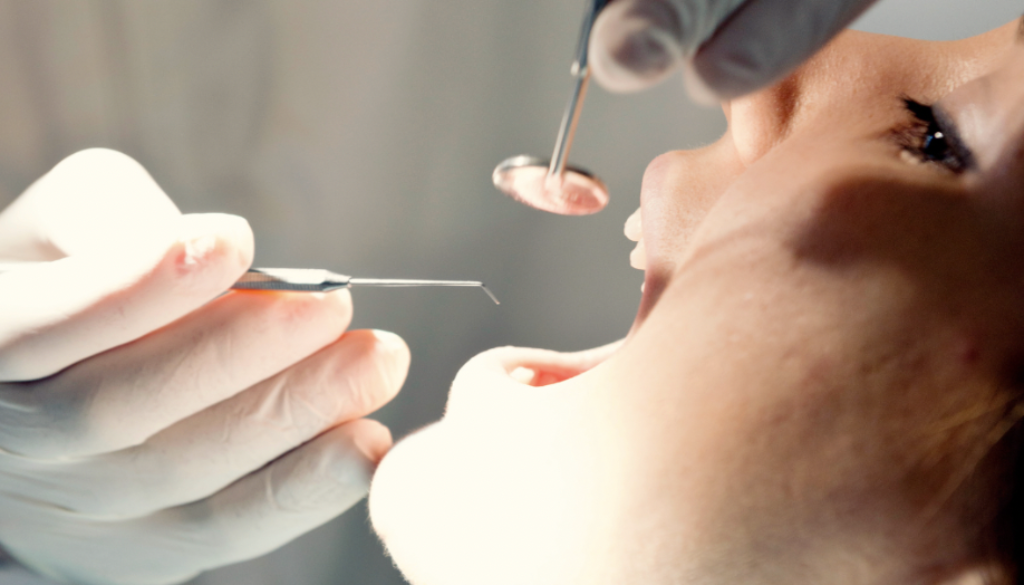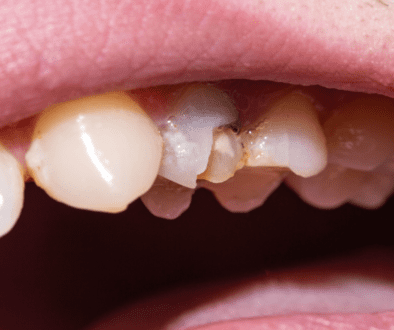Tooth cavities are a very common problem, but luckily they are also very treatable. A cavity is simply a small hole in the tooth that has developed due to decay. When caught early, it is pretty simple to treat cavities with just a filling. However, if a cavity is left untreated, it will continue to grow and decay, eventually leading to more serious dental complications.
What is a cavity?
A cavity is a small hole that forms in teeth. Cavities can occur when plaque buildup creates an acidic environment that erodes tooth enamel. Once the enamel is weakened, bacteria can penetrate the tooth’s inner layers, causing decay. Cavities are most likely to form in areas where plaque is allowed to accumulate, such as between teeth or on the back molars.
How do I know if I have a cavity?
If you’re concerned that you may have a cavity, there are a few things you may be aware of.
- Tooth pain
- Your tooth has changed colour, appearing darker than before
- Unexpected sharp pain
- Holes in your teeth
- Increased tooth sensitivity
If you’re still not sure whether you have a cavity, it’s always best to visit your dentist for an evaluation. They will be able to determine whether you have any cavities untreated. If you do have a cavity, they can provide treatment to help restore your tooth.
How long can I leave a cavity untreated?
We do not recommend leaving a cavity untreated; like most things, the longer you leave them, the worse it will get. As soon as you notice any signs of tooth decay or any sort of oral health concern, you should contact your dentist for immediate treatment. This way, you are avoiding a bigger, more uncomfortable procedure in the future.
What can happen if I leave a cavity untreated?
If left untreated, cavities can cause a number of serious problems. The bacteria and acids can continue to damage your tooth enamel, causing the cavity to grow larger. The hole can eventually reach the layer of dentin beneath your enamel, causing severe pain and sensitivity.
The cavity can also extend to the root of your tooth, causing an infection. If the infection is left untreated, it can lead to abscesses and bone loss, and in rare cases, it may become life-threatening. In short, it’s important to get cavities treated as soon as possible to avoid serious complications.
Can I have root canal treatment for an untreated cavity?
A root canal procedure is recommended when tooth decay has become serious enough to reach the tooth pulp. This can happen when a cavity is left untreated or when an infection has set in.
Root canals may be needed to relieve pain and save the tooth from further damage. The procedure involves removing the damaged pulp, cleaning the inside of the tooth, and filling it with a special material. This helps to restore the strength and function of the tooth.
How to protect tooth enamel to prevent tooth decay?
Tooth enamel is the hardest substance in the human body, but it’s not indestructible. When enamel is exposed to acids, it can start to break down, a process known as demineralisation. This can eventually lead to tooth decay and cavities. Fortunately, there are ways to protect your tooth enamel and prevent demineralisation.
- Avoid sugary foods and drinks.
- Brush your teeth regularly.
- Use a fluoride toothpaste.
- Floss daily
- Visit your dentist for professional cleanings and regular dental checkups.
With these simple steps and a good oral hygiene routine, you can keep your smile healthy and sparkling for years to come!
It’s time to book your dental checkup and avoid the risk of untreated cavities.
When it comes to your dental health, brushing twice a day and reducing your sugar intake are important points to remember. However, it’s also important not to wait until you have a problem to book an appointment with your dentist.
Prevention is always better than cure, and by booking a routine checkup, you can avoid the pain and cost of more severe problems further down the line. Dentists can spot the early stages of problems such as tooth decay, and by treating them quickly, you can prevent them from developing into more serious issues that can affect your overall health.
So don’t delay – book your next dental visit today.




